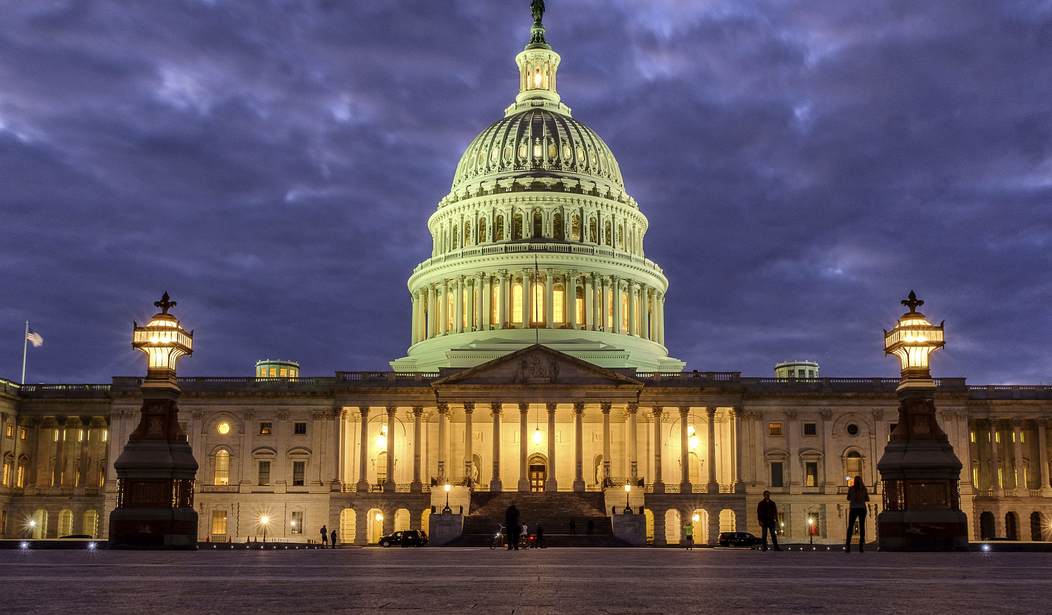So much of both America’s power and her benevolence have been enabled by geography. The fact that two massive oceans protected us meant that we could govern freely and openly, without the same kind of fear of foreign meddling as every other country surrounded by potentially hostile neighbors.
But globalization has constricted the elbow room we once enjoyed.
Despite the pause in President Trump’s executive order doing away with the de minimis provision, which has allowed foreign sellers to sidestep taxes on low-dollar shipments to the United States, it is clear that the White House wants to close the loophole that has undercut American businesses and contributed to the flow of fentanyl into our country as soon as systems are in place for inspecting de minimis shipments and collecting the associated tariffs.
Putting these systems in place will finally close the de minimis loophole — leveling the playing field for U.S. companies competing against Chinese behemoths like Shein and Temu and giving customs officials the resources they need to root out packages containing illicit and dangerous materials. The only problem is that the loophole could just as easily be reinstated whenever a new occupant moves into the Oval Office in the future.
To ensure that that President Trump’s executive order has a lasting impact and to protect the health and well-being of all Americans, Republican lawmakers must now take action on legislation that will permanently close the de minimis loophole. With control of the White House and both chambers of Congress, GOP legislators must strike while the iron is hot to once and for all do away with a provision that has hindered U.S. business growth and helped sow so much pain across our country.
The de minimis rule, which came about as part of the Tariff Act of 1930, was meant to ease the burden on overwhelmed customs officials and allow tourists to avoid paying import duties on souvenirs purchased abroad. An outdated piece of policy created almost 100 years ago, the original intent of the de minimis exemption was to help American tourists avoid paying fees on small – or “minimal” – souvenirs bought abroad. In 2016, the Obama administration increased the de minimis value to $800 in an alleged effort boost economic activity and international trade.
Recommended
Yet since then, the loophole has only suppressed U.S. domestic economic activity. The only boost in international trade has been for Chinese companies shipping their cheap, poorly made, and sometimes counterfeit products to the U.S. Since this rule change, the number of de minimis shipments entering the United States has grown from approximately 139 million shipments in 2015 to over 1 billion in 2023.
The biggest benefactors of that rule change were manufacturers of cheap Chinese goods such as Shein and Temu, which have flooded the U.S. market with their products and get away with paying no import duties. The biggest economic losers are American companies whose competitive edge is eroded and American workers who lose their jobs when factories close.
Doing away with de minimis once is also supported by a broad range of companies and unions ranging from New Balance to the United Steelworkers and the AFL-CIO, which argue the move will bolster the U.S. manufacturing and textile sectors. Last Congress, there were a series of bipartisan bills brought before the body designed to close this loophole.
Along with the economic impact of the loophole there is the human toll de minimis causes, with the provision being blamed for allowing fentanyl and dangerous precursor chemicals to slip through security and prolong the ongoing opioid epidemic plaguing the nation. With the Biden administration unable to effectively stanch the flow of fentanyl into the country and President Trump vowing to tackle the crisis, there is major support for any measure that could aid in this mission.
And for Republican lawmakers there should be added incentives, as red-leaning states have been inordinately hit by drug overdose deaths with West Virginia and Tennessee leading the nation, according to the Centers for Disease Control and Prevention.
There is both the political capital and the desperate need to permanently do away with the de minimis provision. President Trump has taken an important first step. Now it is up to Republicans in Congress to secure the president’s vision by passing de minimis legislation that permanently closes the de minimis loophole. Abolishing the outdated de minimis loophole is vital for ending exploitation of America’s already generous trade policies by China and other bad actors.

























Join the conversation as a VIP Member